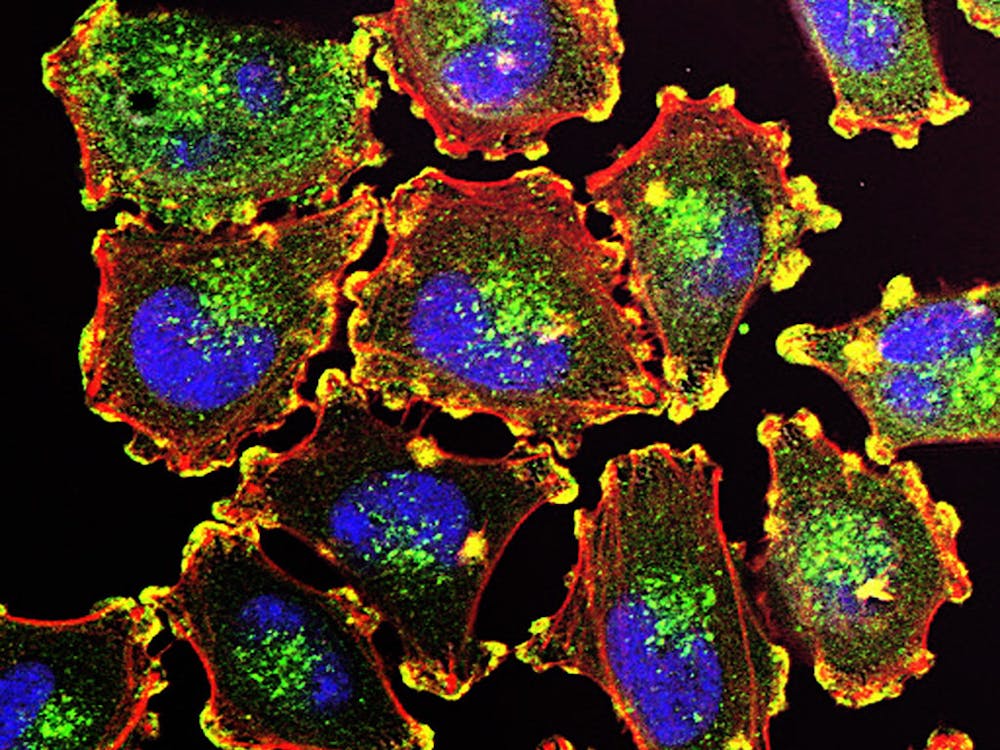Scientists are looking toward an unusual source as a promising method of treatment for disease: bacteria.
In a trial conducted this summer, human volunteers ingested bacteria engineered with the intent of treating phenylketonuria (PKU), a rare genetic disorder.
Individuals with PKU are unable to break down the amino acid phenylalanine as a result of mutations in a gene that codes for an enzyme which processes phenylalanine. This allows the amino acid to accumulate into toxic amounts that are damaging to the body.
To manage the disorder, individuals with PKU must minimize their dietary intake of phenylalanine by avoiding protein and other foods or drinks that contain the artificial sweetener aspartame.
Depending on enzyme levels and functionality, which can vary between individuals, those affected by PKU are at risk of moderate to severe brain damage and other neurological problems including seizures.
While newborns with PKU do not display symptoms, within a few months infants will begin to show signs of the disease, including a distinct odor due to phenylalanine accumulation and delayed development or behavioral issues.
Researchers at the biopharmaceutical company Synlogic are attempting to approach a treatment for PKU using the field of synthetic biology. The discipline aims to combine engineering and biology, designing and building artificial biological components or systems, including proteins, cells and even whole organisms.
Synthetic biology has already begun to see use in applications such as antibiotic discovery. By creating genetically engineered yeast, researchers anticipate being able to use them to produce a wide range of potentially antibacterial proteins, which can then be tested.
Recently, scientists have been gaining more interest in using synthetic biology to develop live biotherapeutics, treatments or preventatives containing live microorganisms. This has been helped by an increasing understanding of the human microbiota, the diverse collection of microbes that inhabits the human body.
Synlogic’s therapy for PKU relies on Escherichia coli (E. coli), a common bacterial strain that naturally resides in the human gut. The particular strain chosen by the researchers, Nissle 1917, has been used before to manage inflammatory bowel disease, ulcerative colitis and other gastrointestinal diseases.
The E. coli intended to treat PKU were modified with inserted genes that make the bacteria able to metabolize phenylalanine.
The inserted genes included ones which coded for proteins that degrade phenylalanine. Because the induction of these genes adversely affected the growth rate of the E. coli, the researchers inserted promoters which function in the absence of oxygen, suitable for the more anaerobic conditions in the gut.
Redundant copies of the genes were also inserted to ensure that loss-of-function mutations in one copy would not render the entire strain ineffective. The researchers avoided genes that are known to be associated with antibiotic resistance.
To monitor the activity of the bacteria, scientists observed levels in the urine of the compounds phenylalanine was being degraded into.
Experiments in mice engineered with the mutation that results in PKU showed that the bacteria reduced levels of serum phenylalanine, in a way that was not affected by the amount of protein in the animals’ diet.
The researchers also studied the bacteria’s effect on healthy cynomolgus monkeys. They found increased levels of phenylalanine metabolites, and when the monkeys were fed large amounts of protein, the engineered E. coli suppressed spikes in phenylalanine levels.
Synlogic has also undertaken human trials, during which healthy volunteers ingested varying doses of the engineered bacteria, followed by high-protein food or drink. The company reported that the bacteria was safe and tolerable in humans, and biomarkers indicated that phenylalanine was being degraded dose-dependently.
The company intends to continue with trials, extending them to patients with PKU. If the therapy is ultimately successful, it has the potential to become the first synthetic biology treatment approved by the Food and Drug Administration.






















Please note All comments are eligible for publication in The News-Letter.